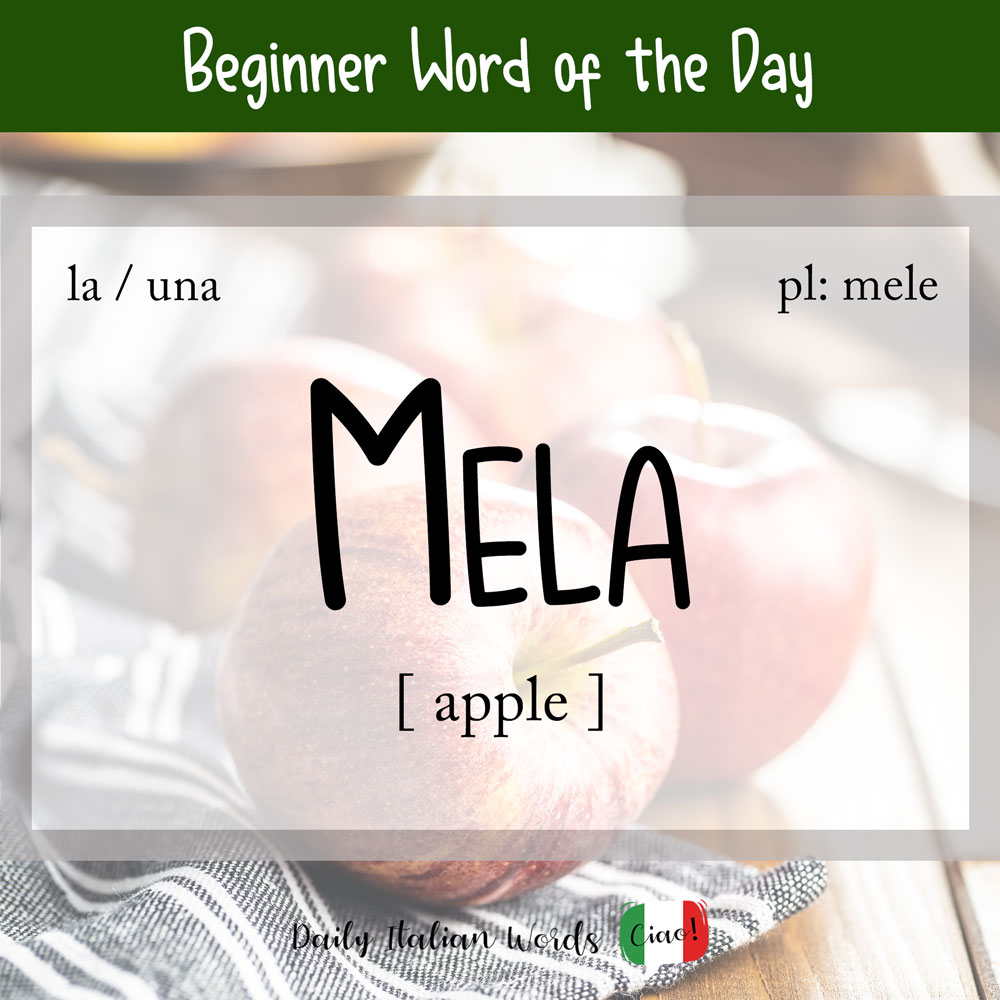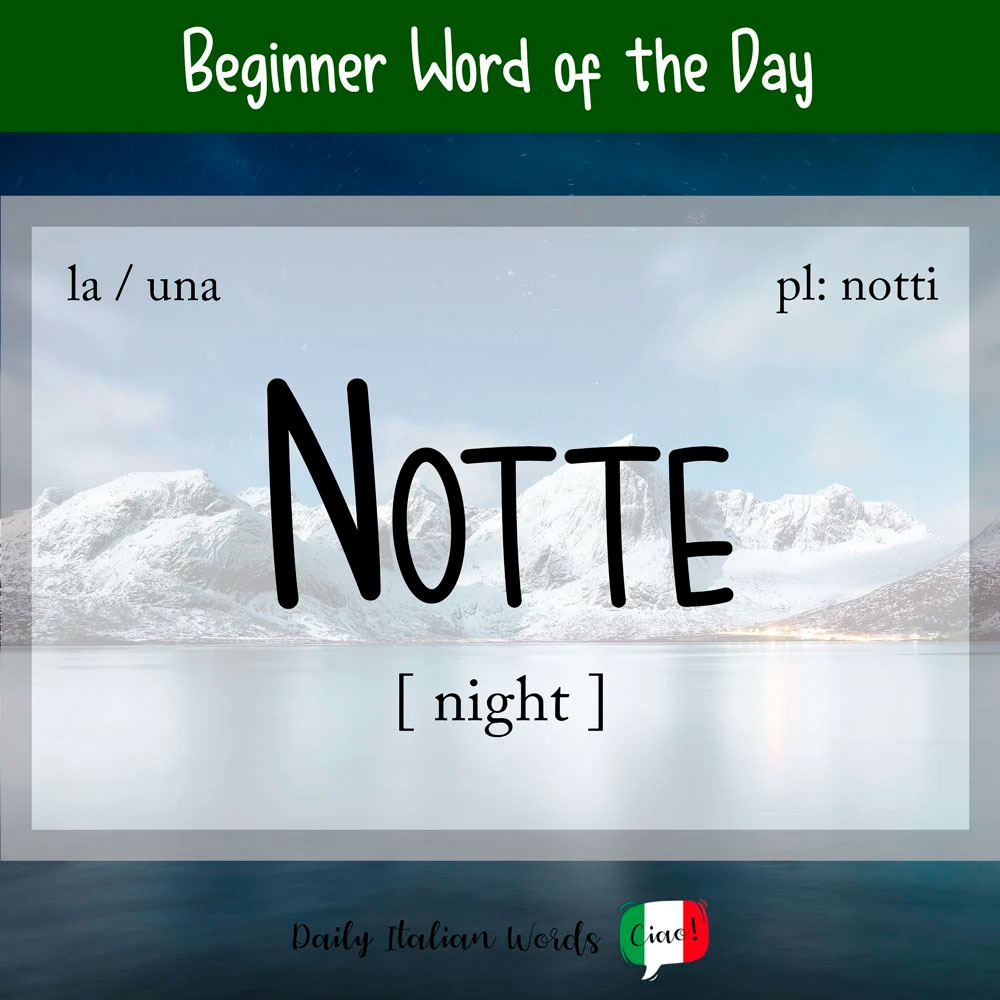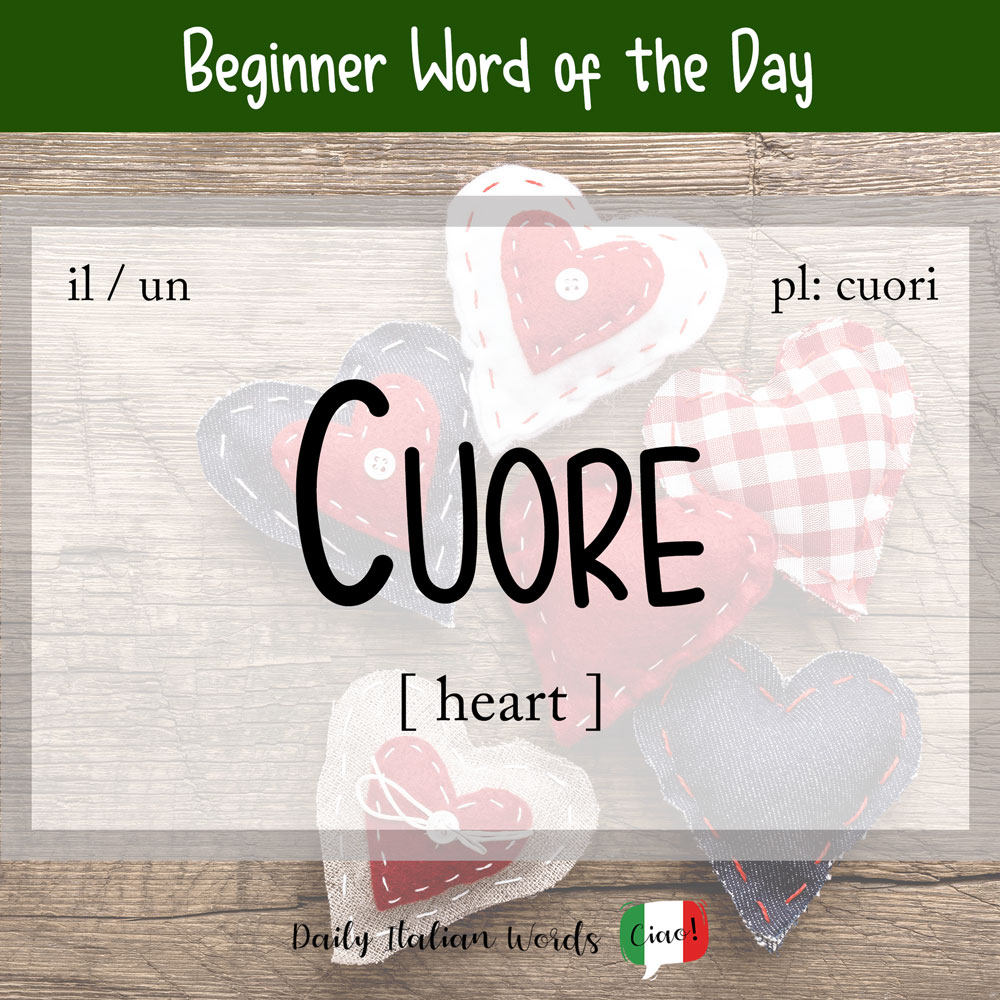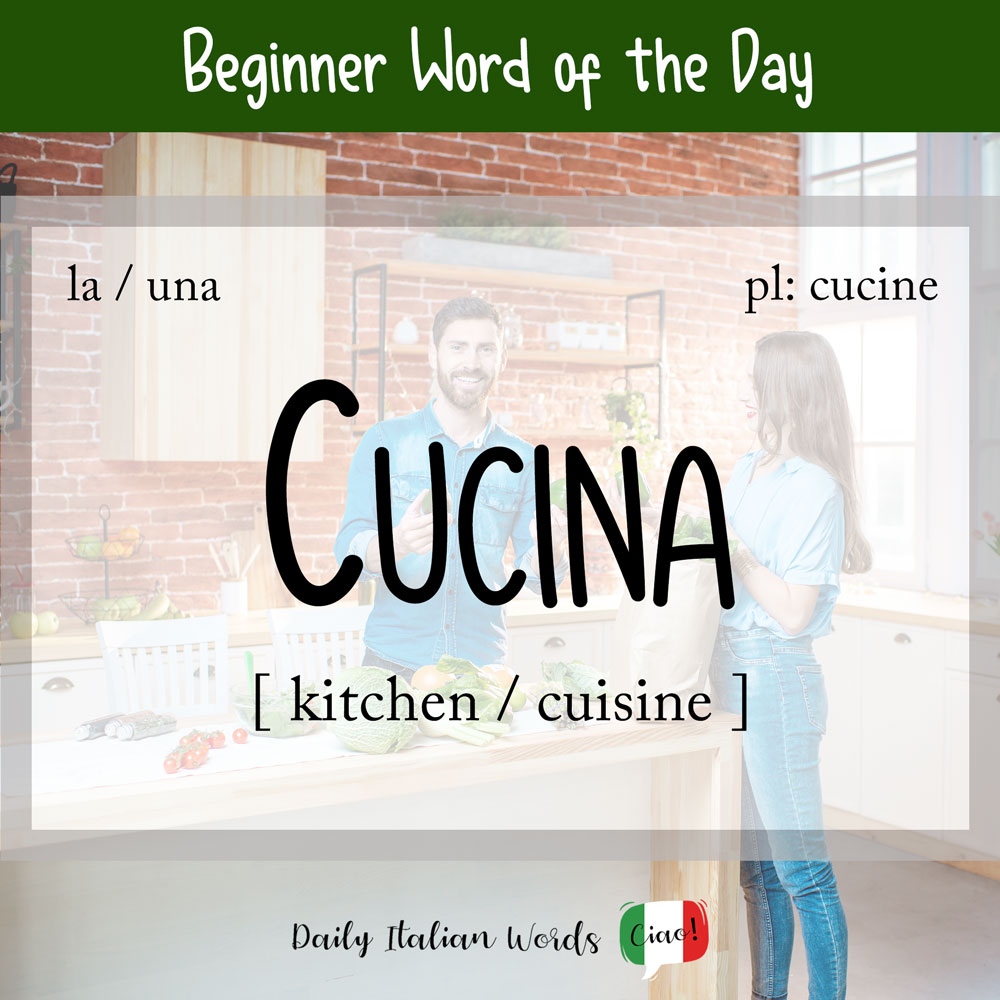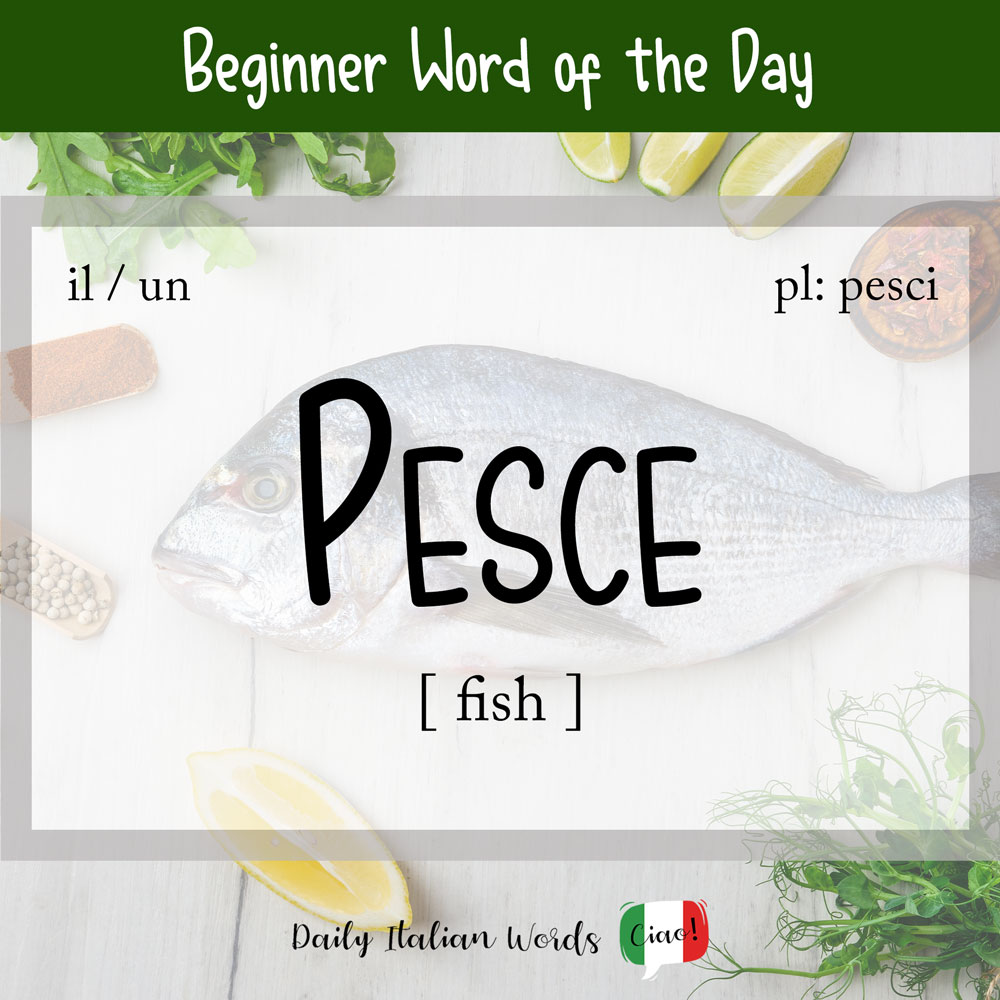Italian Word of the Day: Mela (apple)
The Italian word for apple is mela (feminine, plural: mele) and the tree upon which they grow is called melo. Both words derive from the Latin word “mālum” meaning “any tree-fruit fleshy on the outside and having a kernel within.” (Lewis & Short Latin Dictionary) Today it forms the basis of many fruit names in …

